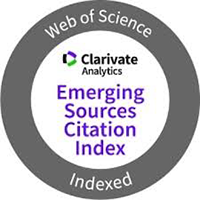While waiting for the ball to roll” – sporting clubs as spaces of counterculture, the case of Estrela da Amadora (1951-1974)
DOI:
https://doi.org/10.20868/mhd.2023.24.4777Keywords:
Estrela da Amadora, Estado Novo, sporting associations, counterculture, everyday resistanceAbstract
This paper aims to stress the role sporting clubs play in the struggle against authoritarian regimes, using as a paradigmatic case study a small football club in the outskirts of Lisbon: Estrela da Amadora. The ties between sports and politics are well established. However, these linkages are usually highlighted resorting to moments and gestures of great dramatic intensity when nonconformist attitudes are publicly and boldly exposed. By turning our attention to the activities conducted by a club during a decade long span we get a clearer notion of the everyday strategies of resistance that were put into place. Estrela’s club house was one of the most important venues for social gatherings in the town. It was home to a library, illegal gambling, and cultural performances, some of them performed by several of the most notable “subversives” of the time. The club’s bulletin was also used to promote debates marginal to any sporting activity, some of them with not-so-subtle political undertones. During the 1950’s, the club’s board was stormed by oppositionists, eager to use it as a platform to “dribble” the constraints imposed by the dictatorship. From raids of the political police to conflicts with the church, these years portray the possibilities that the popularization of sports could open to political association, especially in times of repression. Albeit in some respects an exceptional case, we hope to demonstrate that the study of local clubs can reveal a broader culture of resistance, one that is not confined to
parties or traditional political associations. To surmise, we seek to explore an object that is usually marginalized in historiographical debates, rescuing a set of documental, material, and oral sources of great relevance for the history of everyday resistance to the Portuguese Estado Novo.
Downloads
References
- Arquivos
Arquivo da Secretaria-Geral do Ministério da Administração Interna (SGMAI)
Arquivo Municipal de Oeiras
Arquivo Nacional da Torre do Tombo (ANTT)
- Fontes impressas
Boletim do Clube de Futebol Estrela da Amadora (1951)
Notícias da Amadora (1973)
- Entrevistas
João Luís Santos Silva, realizada a 13-09-2021
- Bibliografia
Brasão, Inês. 2012. “Desencontros da História com o Futebol Feminino”. Em Futebol Português—Política, género e movimento. Porto: Afrontamento.
Cardão, Marcos. 2014. “Um significante instrumental. Eusébio e a banalização do lusotropicalismo na década de 1960”. Em Esporte, Cultura, Nação, Estado – Brasil e Portugal, editado por Victor Andrade de
Melo, Fábio de Faria Peres e Maurício Drumond, 172–87. Rio de Janeiro: 7 Letras.
Domingues, Nuno Baptista. 2004. “O Futebol e a Indústria no Barreiro”. Em A Época do Futebol: o jogo visto pelas ciências sociais. Lisboa: Assírio & Alvim.
Dunning, Eric. 2001. Sport Matters: Sociological Studies of Sport, Violence and Civilization. London: Routledge.
Fiadeiro, Maria Antónia. 2003. Fernando Piteira Santos: português, cidadão do século XX. 1ª ed. Porto: Campo das Letras.
Gaspar, Jorge. 1971. Aspectos geográficos do futebol em Portugal. Lisboa: Brotéria.
Kumar, Rahul e Nuno Domingos. 2011. “A Grande Narrativa Futebolística”. Em Uma História do Desporto Em Portugal. vol.1. Vila do Conde: Quidnovi.
Kumar, Rahul. 2017. A pureza perdida do desporto: futebol no Estado Novo. Lisboa: Paquiderme.
Melo, Daniel. 2010. “‘A força do povo’ photomaton do associativismo popular”. Em Como se faz um povo: ensaios em história contemporânea de Portugal. Lisboa: Tinta-da-China.
Neves, José. 2009. “Ler desportivamente Lenine?: para a História do Comunismo e do Desporto em Portugal”. Esporte e Sociedade, n.º 11 (julho): 1–23.
Nunes, João Pedro Silva. 2007. Florestas de cimento armado: Os grandes conjuntos residenciais e a constituição da Metrópole Lisboa, 1955-1981. Lisboa: Universidade NOVA de Lisboa.
Nunes, João Pedro Silva. 2012. “Crescimento Urbano e experiência suburbana em Lisboa - O caso da Amadora (1960-1974)”. Crítica e Sociedade: revista de cultura política, n.º 2: 1-21.
Pinheiro, Francisco. 2011. História da imprensa desportiva em Portugal. Biblioteca das ciências sociais 34. Porto: Afrontamento.
Pinto, António Costa, Nuno Gonçalo Monteiro, Jorge Miguel Pedreira, Pedro Tavares de Almeida, Nuno Severiano Teixeira e José Luís Cardoso. 2013. História contemporânea de Portugal, 1808-2010. 1ª ed.
Carnaxide Madrid: Objectiva ; Fundación MAPFRE.
Rosas, Fernando. 2019. Salazar e os fascismos. 1ª ed. Lisboa: Tinta-da-China.
Salas, Cristóbal Villalobos. 2021. Futebol e Fascismo. Leya.
Serôdio, Maria Helena e Eunice Tudela de Azevedo. 2013. Joaquim Benite desafiou próspero... e inscreveu o mundo no seu teatro. 1ª ed. Almada: Companhia de Teatro de Almada.
Serrado, Ricardo. 2009. O jogo de Salazar: a política e o futebol no Estado Novo. 1ª ed. Cruz Quebrada: Casa das Letras.
Serrado, Ricardo. 2012. O Estado Novo e o futebol. 1ª ed. Parede: Prime Books.
Silva, Eliazar João da. 2012. “De esporte das elites ao esporte popular: a trajetória do Futebol no Brasil”. Fronteiras: Revista de História 14, n.º 25: 99–110.
Tomlinson, Alan. 2010. A Dictionary of Sports Studies. Oxford ; New York : Oxford University Press.
Wambach, Julia. 2022. “Feeling Political Through a Football Club: FC Schalke 04, 1904–2020”. Em Feeling Political: Emotions and Institutions since 1789, editado por Ute Frevert, Kerstin Maria Pahl et al., 249–76.
Palgrave Studies in the History of Emotions. Cham: Springer International Publishing. https://doi.org/10.1007/978-3-030-89858-8_9.
Downloads
Published
Issue
Section
License
Authors who submit to this journal agree to the following terms:
- Author(s) keep copyright and guarantee to the journal the right to be the first publication of the work as licensed under Creative Commons Attribution-Noncommercial-ShareAlike 4.0 International as initial publication in this journal.
- Author(s) can establish additional agreements for non-exclusive distribution of the version of the work published in the journal (for example, to an institutional archives or to publish it in a book), with an acknowledgment of its initial publication in this journal.
- It is allowed and authors are encouraged to disseminate their work electronically (e.g, in institutional open archives or on their own website) before and during the submission process, as it can lead to productive exchanges, as well as a citation earlier and more of published work (See the Effect of Open Access).










